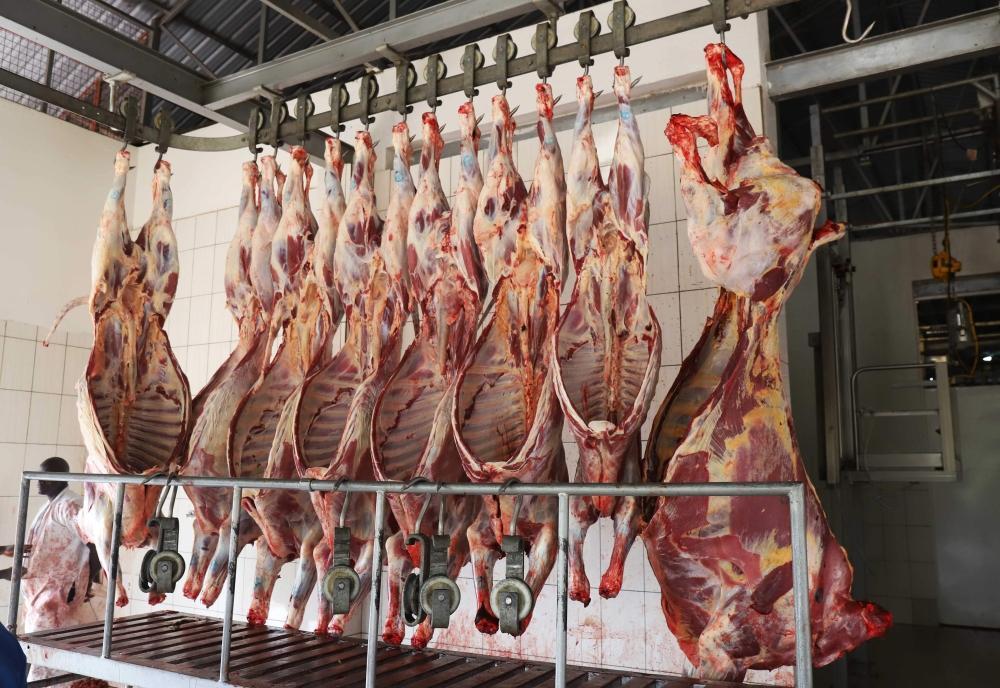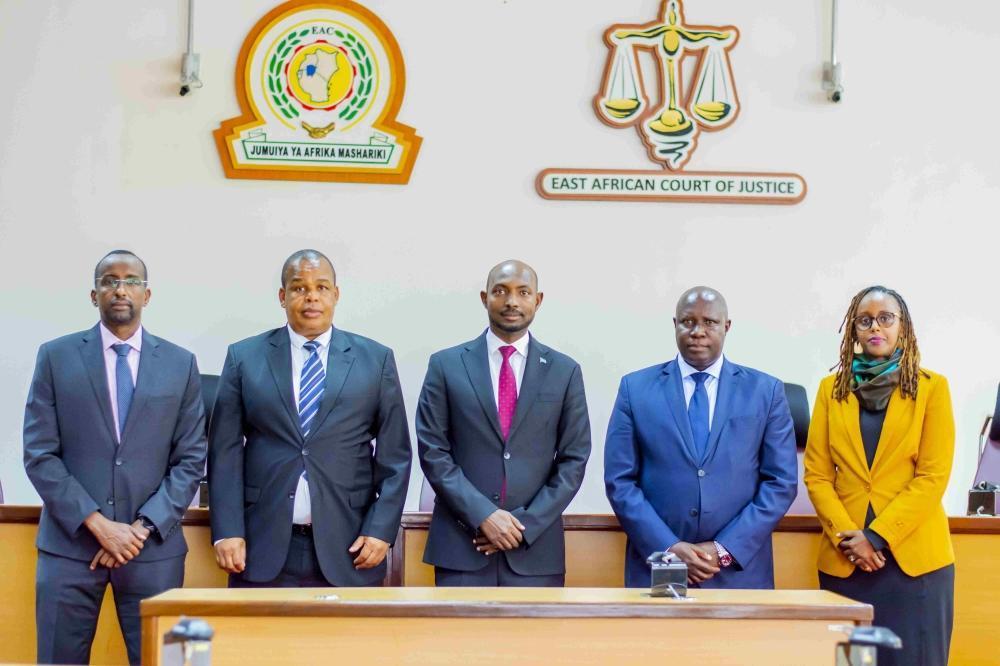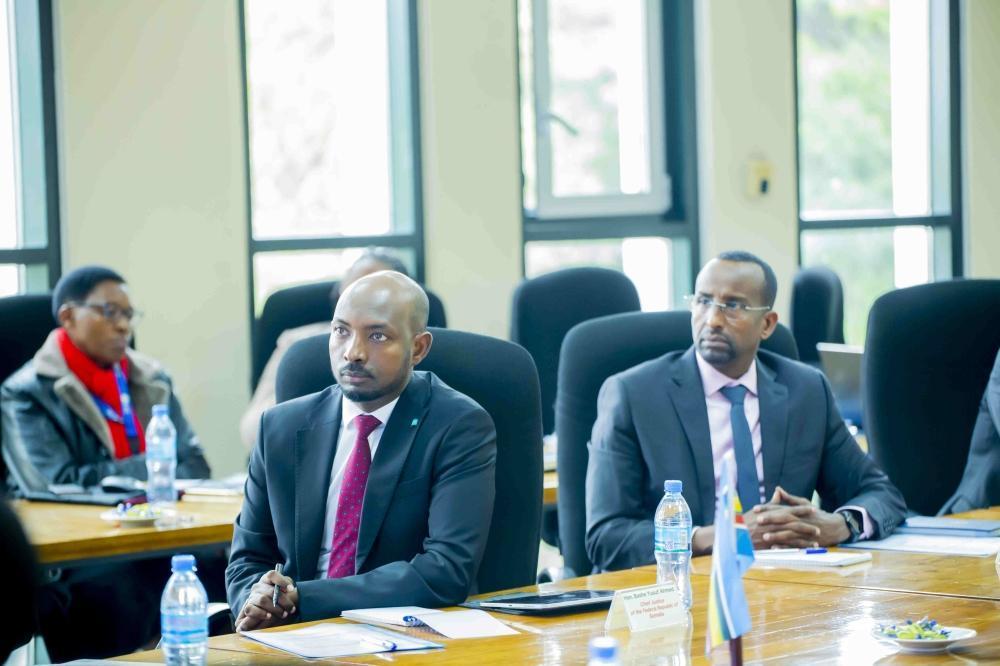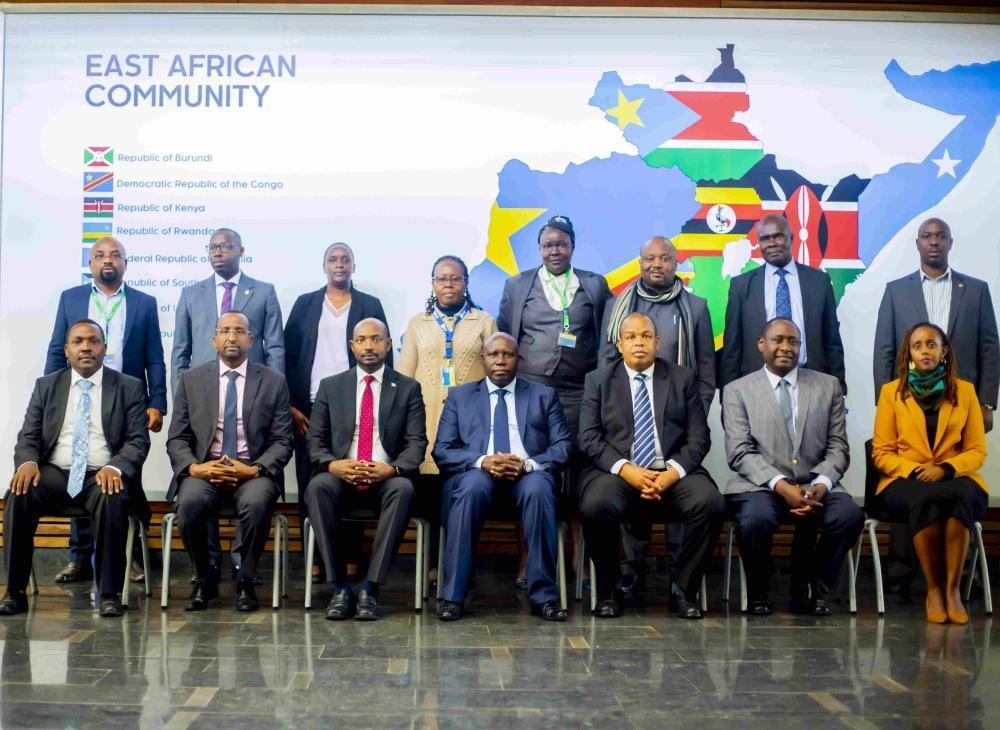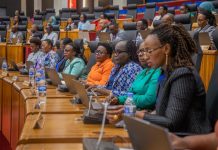Africa-Press – Rwanda. Rwanda Council of Veterinary Doctors ( RCVD) has said that the creation of companies at district level, saving and loan schemes will enable its members to deliver as they take over key veterinary services which government staff were providing.
The Ministry of Agriculture and Animal Resources (MINAGRI) , on July 25, announced that key veterinary services will now be provided by private operators under the ‘Veterinary Sanitary Mandate’ Scheme, with government oversight.
This initiative aims to bring veterinary services closer to farmers, establishing a strong link between private veterinarians and the state.
The mandate places veterinarians at the service of the state and the public for general interest missions, such as early detection and control of animal diseases.
The decision was taken given that farmers were relying heavily on sector-level animal resources officers yet these officers are often too few and too far from farmers to provide effective services.
In addition, these animal resources officers at sector level lack specialised veterinary skills, “as they are not necessarily trained veterinarians”.
This was leading farmers to mistakenly assume that these officers can handle serious animal illnesses.
Under the scheme, private vet practitioners will provide various services, including animal care, housing, feeding, disease treatment, artificial insemination, and animal product inspection.
“Our members are ready to take over these services. They are creating companies which will sign contracts with districts to be able to provide the services.
In addition we have created a saving and loan scheme which will enable them to afford standard equipment and tool kits as a way of improving service delivery to farmers,” the Executive Secretary of the council, Dr.Alphonse Nshimiyimana, told The New Times.
The veterinarians are allowed to get loans from the scheme to develop themselves or buy needed veterinary tool kits.
He said the the council members can get loans from the saving scheme at only 7 per cent interest rate as
“We are getting partners and we hope for more funding apart from members’ savings'” he said.
Each veterinarian has to contribute Rwf100,000 share capital to the saving scheme and then after each veterinarian has to contribute Rwf5,000 as minimum saving every month.
In 2023, Rwanda had about 5,000 veterinary practitioners registered with the Council of Veterinarians, but the country needs 13,539 to take care of the livestock in the country.
The council has also urged all veterinary doctors and technicians to acquire membership and licenses from the council as they take over key government veterinary services.
Nshimiyimana explained that taking over the services is timely given that their study showed 88 per cent of the council members work in private institutions or work privately while only 12 per cent work in public institutions.
Districts will sign contracts with the companies owned by the members , employing them based on the number of animals in each area.
The companies must also inform the vet council to get recommendation letters as they compete for providing the vet services as mandated by the government.
Farmers will pay for these services as usual, following prices regulated by the 2017 ministerial order.
Animal resources officers at the district and sector levels will continue coordinating and monitoring the operations of private vet companies.
In the event of an outbreak, districts may contract these companies, using earmarked funds to support vet activities, primarily for mass vaccinations. Development partners will also support the scheme.
How to get license
The veterinary council is a regulatory body mandated to regulate the veterinary profession.
“Only registered members of the council with valid licenses should join the vet companies which will take over the key services,” Nshimiyimana added.
The council’s general mission is to ensure that its members (veterinary professionals and paraprofessionals) provide quality and reliable services which include lucrative and preventive veterinary medicine, animal reproductive, veterinary pharmacy practice and use of inputs and livestock equipment, hygiene and quality of animal products, wild animal medicine among others.
Requirements for registration and membership include a letter addressed to the council’s chairperson, notified degree and diploma, Rwf30,000 copy of ID and a filled application form.
To apply for the license, it requires license application letter addressed to the Chairperson of the council, copy of previous license for those already in practice, Rwf60,000 annual licensing fee for veterinary doctors and Rwf40,000 for technicians with A2 and A1 diploma holders, certificate of registration on country of origin for foreigners among others.
Fresh graduates pay only Rwf15,000 to get a provisional license as they pursue their professional internship.
The Chief Justice of Somalia, Bashe Yusuf Ahmed, visited the East African Court of Justice (EACJ) in Arusha, Tanzania, on Tuesday, July 30, in what he described as part of efforts to foster cooperation between his country and the regional court.
According to an EAC statement, Ahmed said that Somalia is a nation emerging from decades of conflict and was therefore committed to strengthening her judiciary and aligning it with regional standards.
“The East African Court of Justice, with its commendable history of promoting justice and upholding the rule of law within the EAC is a model for us at the Supreme Court of Somalia,” said Ahmed.
Ahmed, who was received by the Judge President of the EAC, Justice Nestor Kayobera, said that Somalia was seeking to learn from the experiences and expertise of the EACJ as she strives to establish a fair, impartial and efficient justice system.
The Judge President of the East African Court of Justice, Justice Nestor Kayobera (second right) and the Chief Justice of Somalia, Bashe Yusuf Ahmed (centre) during a tour of the EACJ Chambers in Arusha, Tanzania. Also in the photo are (from left) Dr. Ahmed Ali Khayre, an advisor to the Somalia Chief Justice, the EACJ Principal Judge Yohanne Masara and Christine Mutimura-Wekesa, the EACJ Deputy Registrar.
“We have been working tirelessly to rebuild and strengthen our legal frameworks, enhance judicial independence, and ensure that justice is delivered efficiently and fairly for all. We recognise that peace, stability, development and prosperity are inextricably linked to the establishment of a just and equitable legal framework,” said Ahmed.
Ahmed reaffirmed that Somalia which joined the East African Community (EAC) in March was committed to strengthening and rebuilding its institutions and playing its important role within the EAC.
“Our visit to the EACJ is a significant opportunity for us to share views, experiences, best practices and learn from each other and more importantly, it is a new beginning, new chapter and opportunity for building strong relationships, mutual cooperation and partnerships between the Somalia judiciary and the EACJ,” he said.
“The challenges we are facing as a region are complex and interconnected. We must confront them collectively, drawing on the strengths of our diverse communities. The East African Court of Justice and other Community institutions demonstrate that through cooperation and share values, we can overcome adversity and build a brighter future for our people and the generation yet to be born.”
The Chief Justice of Somalia, Bashe Yusuf Ahmed (left) and his Advisor, Dr. Ahmed Ali Khayre, follow proceedings during a presentation at EAC Headquarters in Arusha, Tanzania.
Ahmed underscored the importance of a strong and independent judiciary guaranteeing peace and stability at the national and regional levels.
“We believe that a strong and independent judiciary, as the custodian of justice, doesn’t merely resolve conflicts, but is essential for creating a sense of security among the population, contributing to rebuilding of a nation that stands on the principles of equity and justice, attracting investment, promoting trade, and advancing good governance,” he added, and emphasised Somalia’s commitment to investing in capacity building of its judges, prosecutors and legal professionals.
Ahmed said that by working together, EACJ and the Somalian Judiciary can enhance their capacities to deliver justice, protect the rights of EAC citizens and contribute to the overall development and prosperity of the region.
On his part, Kayobera underscored the importance of judicial diplomacy whereby judiciaries regularly interact with their counterparts at the national and international levels to share experiences, best practices and to learn from one another. He hailed Ahmed for making the maiden visit to the regional court.
The Judge President of the East African Court of Justice, Justice Nestor Kayobera (seated centre), the Chief Justice of Somalia, Bashe Yusuf Ahmed (3rd left) in a group photo with EAC officials and members of staff in Arusha, Tanzania, on Tuesday, July 30. Seated in the photo are (L-R) John Mutega (Deputy Clerk – EALA), Ahmed Ali Khayre (Advisor to Somalia CJ), EACJ Principal Judge Yohanne Masara, Anthony Kafumbe, the Counsel to the Community, and Christine Mutimura-Wekesa, the EACJ Deputy Registrar.
Justice Kayobera said it was important for newly admitted EAC partner states to understand the role of the EACJ as a neutral arbiter on the interpretation of the Treaty for the establishment of the EAC, its functions and mandate, saying that this would ensure the smooth running of the regional bloc.
Justice Kayobera disclosed that Somalia was expected to appoint a Judge to sit in the First Instance Division, in the near future.
Also present at the event were the EACJ Principal Judge Yohanne Masara, the Counsel to the Community, Anthony Kafumbe, the Adviser of the Chief Justice of Somalia, Dr. Ahmed Ali Khayre, the Deputy Registrar of the EACJ, Christine Mutimura-Wekesa, and the Deputy Clerk at the East African Legislative Assembly, John Mutega.
For More News And Analysis About Rwanda Follow Africa-Press

